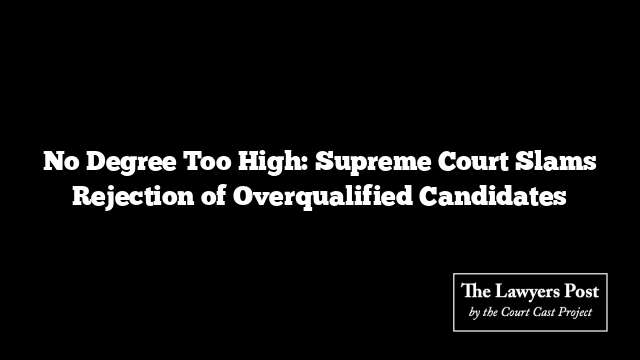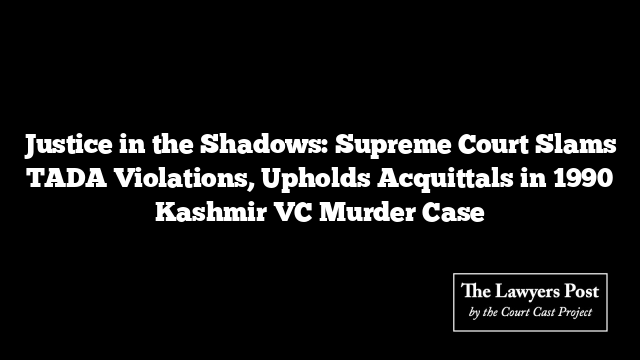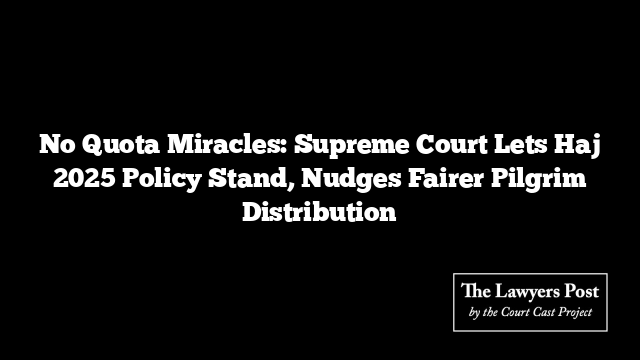In a sharp rebuke to bureaucratic red tape and misinterpretation of qualifications, the Supreme Court ruled that candidates cannot be tossed out of recruitment just because they hold higher academic degrees than those mentioned in job postings.
At the center of the case were aspirants with post-graduate degrees in Microbiology and Food Science who were denied a shot at becoming Food Safety Officers (FSOs) in Jharkhand. The state had dismissed them on the bizarre logic that since the job notification asked for a bachelor’s degree, anyone with a master’s—or higher—was somehow too qualified to be considered.
The top court wasn’t having any of it.
A bench led by Justices Vikram Nath and Sandeep Mehta shredded that argument, declaring that unless explicitly stated otherwise, the word “degree” covers the full academic spectrum—bachelor’s, master’s, or doctorate. Citing the University Grants Commission Act of 1956, the Court clarified that no administrative whim can redefine what constitutes a valid academic credential.
“It’s not just a piece of paper,” the bench noted in essence. “A master’s in the right subject doesn’t magically become invalid because a lower degree was listed. That’s not law—it’s exclusion dressed up as procedure.”
The Jharkhand High Court had previously sided with the state, interpreting the recruitment ad to mean that master’s degrees in the relevant subjects (excluding Chemistry) were a disqualifier. But the Supreme Court overruled that, calling the exclusion arbitrary, illogical, and unconstitutional.
Drawing from past precedent, the bench observed: “There is no reason why someone with a master’s or doctorate should be less eligible than someone with a bachelor’s, so long as the subject aligns. To say otherwise is to punish academic achievement.”
And there was more. The Court firmly told the State of Jharkhand to stay in its lane. The authority to prescribe qualifications for FSOs lies solely with the Central Government, not individual states dreaming up their own rules.
The verdict didn’t just restore hope to the disqualified candidates—it also reset the process. The Court directed that they be considered from the point they were dropped (the interview stage), and if no slots were left, supernumerary posts must be created to fit them in. They won’t get back pay, but their service benefits will be recognized on a notional basis, with seniority adjusted to respect existing appointments.
In the end, the message was crystal clear: India’s highest court won’t let technicalities override common sense. A degree isn’t a ceiling—it’s a credential. And no one should be disqualified for knowing too much.





